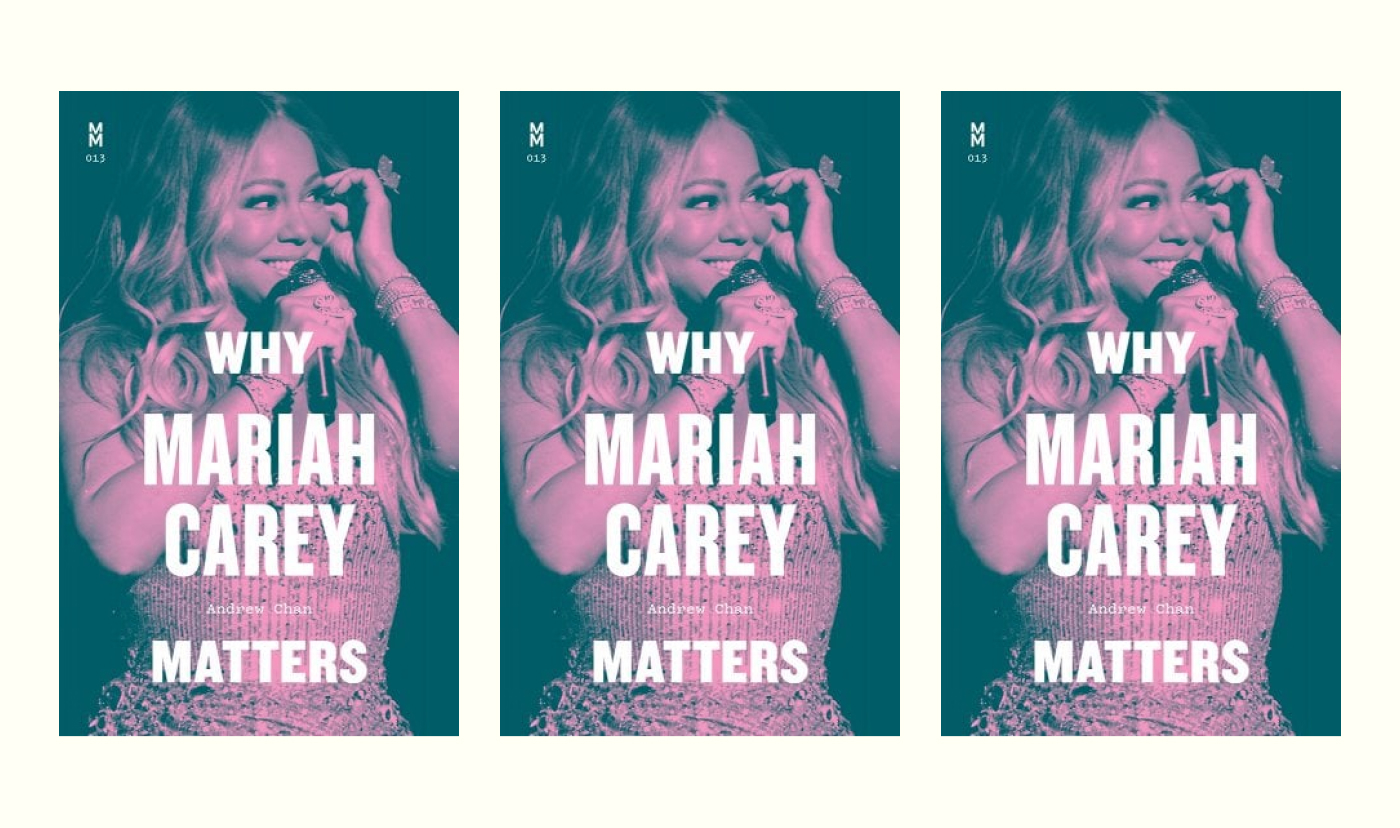- New Arrivals
Fiction
- Historical FictionCrime & ThrillersMysteryScience-FictionFantasyPoetryRomanceChildren’s BooksYoung Adult
- Biographies & MemoirsHistoryCurrent AffairsTech & ScienceBusinessSelf-DevelopmentTravelThe ArtsFood & WineReligion & SpiritualitySportsHumor
Children’s Books
Lists
Blog
Gift Cards
My Lists
Games
The co-op bookstore for avid readers
'Why Mariah Carey Matters,' by Andrew Chan: An Excerpt
When it comes to Mariah Carey, star power is never in doubt. She has sold hundreds of millions of albums and cut more chart-topping hits than any other solo artist—ever. And she has that extraordinary five-octave vocal range. But there is more to her legacy than eye-popping numbers.
In Why Mariah Carey Matters, the first book to critically examine the legacy of the pop superstar, author Andrew Chan delves into the creative evolution and complicated biography of a true diva, making the case that, despite her celebrity, Carey’s musicianship and influence are insufficiently appreciated. Why Mariah Carey Matters comes out September 12.
Excerpted from Why Mariah Carey Matters by Andrew Chan, © 2023, published with permission from the University of Texas Press.
Not all singers have moments of revelation that can be easily woven into their mythologies, but Mariah has several. There’s the time when she was around eight years old and a friend told her, “When you sing it sounds like there are instruments with you,” a poetic description that encapsulates something naïve and unschooled about how we respond to the lightning bolt of talent in our midst. There’s the moment when Mariah’s mother, a singer with the New York City Opera, realized that her child had a gift: while practicing a challenging aria from Rigoletto, Patricia Carey heard her daughter repeat a line back to her with flawless pronunciation and pitch. And in her memoir, Mariah shares an anecdote from the late ’80s in which she’s an audience member at a performance by the R&B star Jeffrey Osborne. While singing his hit “You Should Be Mine (The Woo Woo Song),” Osborne tosses the mic to her, and she ends up soaring into her whistle register, stunning the crowd.
As time goes by, such stories begin to function as origin myths. They’re as much about talent coming into the knowledge of itself as they are about its reception by others. They also bolster the idea that certain meteoric ascents are preordained, impervious to chance. Mariah subscribed to this notion from a young age, and it’s not hard to understand why. Her mother had given her a glamorous name and urged her, “Don’t say ‘if I make it,’ say ‘when I make it.’”
The closest Mariah came to staging this illusion of out-of-the-blue emergence for a wide audience was her June 1990 performance of “America the Beautiful” at the NBA Finals—one of her first prime-time TV appearances. I use the word “illusion” because, technically, she had already arrived: her first single was released the previous month.
A eureka moment in pop, “Vision of Love” begins portentously, with a reverberating synthesizer effect that sounds like the door of a spaceship cracking open, presumably to let out the unearthly vocal specimen inside. Once the lyrics kick in, the song feels a bit too sophisticated to have been written by a teenager, but it also has the endearing quasi-maturity of a girl feverishly dreaming herself into adulthood. Young Mariah imagines romantic love as something not unlike her own impending stardom—it’s “sweet destiny,” a force bigger than herself. But even as that destiny dwarfs her, she describes herself as someone with agency, a kind of prophetess, responsible for manifesting “the love that came to be” through diligent prayer.
At the time of the NBA Finals, “Vision of Love” hadn’t achieved mass-market saturation and Mariah wasn’t yet a household name; the single was still a couple months away from topping the charts. Planted in the middle of destiny’s brief (if undoubtedly agonizing) delay, this extracurricular performance was a pivotal one, undertaken with the solemnity of a maiden voyage. “America the Beautiful” might not have the prestige of “The Star-Spangled Banner,” but putting her stamp on it allowed Mariah to place herself in the soul tradition of Ray Charles, whose famous 1972 version gave the song an idiosyncratic, proudly Black makeover. In his rendition, you hear an artist imprinting his sensibility—his gravelly timbre and inimitable way of lagging behind the beat—onto a standard that anyone raised in the U.S. will have heard hundreds of times before. His approach, rooted in gospel, turns the song into a platform for individual expression and emotion, not a prompting for an easy, breezy sing-along.
Mariah was not a veteran like Charles, but her take was no less audacious. Greeted with polite applause and wearing the nondescript black bodycon dress featured on the back of her debut album, she launches confidently into her lower register, thick and imposing. As she moves through “spacious skies” and “amber waves of grain,” she revises the familiar melody playfully but judiciously, her voice beginning to unfurl. “America the Beautiful” isn’t known for the leaps that make the national anthem difficult for the average person to sing, so you start to doubt whether she’ll manage to push the song into her upper register and bring the house down. Then it happens: she bends the song to her will. On “sea to shining sea,” she turns the climactic “sea” into “sea-ahhhh . . . ,” starting in her chest voice, then vaulting multiple octaves up into a whistle note of such purity it barely sounds real. The audience responds in exaltation.
Used with permission from the University of Texas Press.
Want to keep reading? Check out Why Mariah Carey Matters by Andrew Chan.

